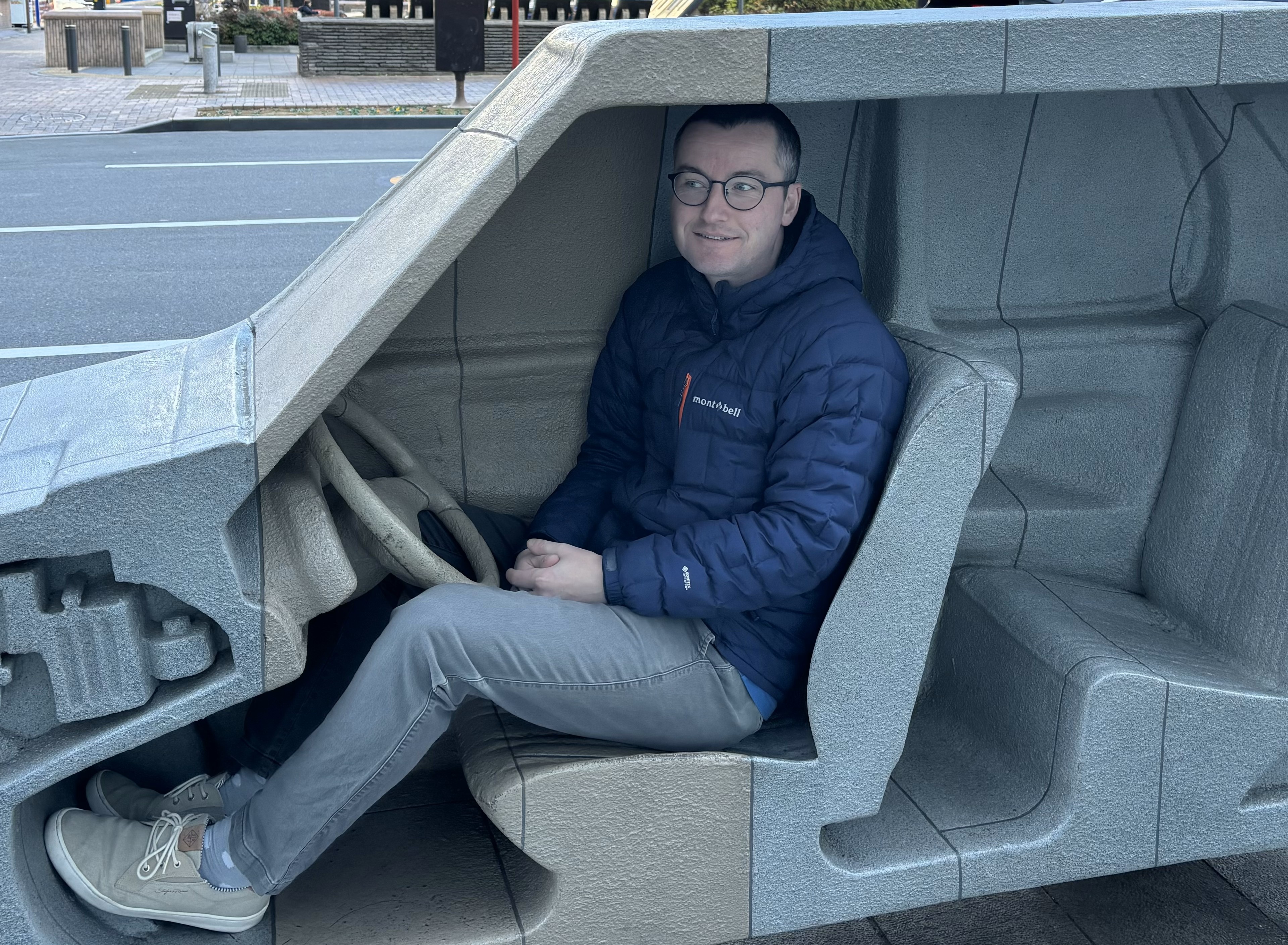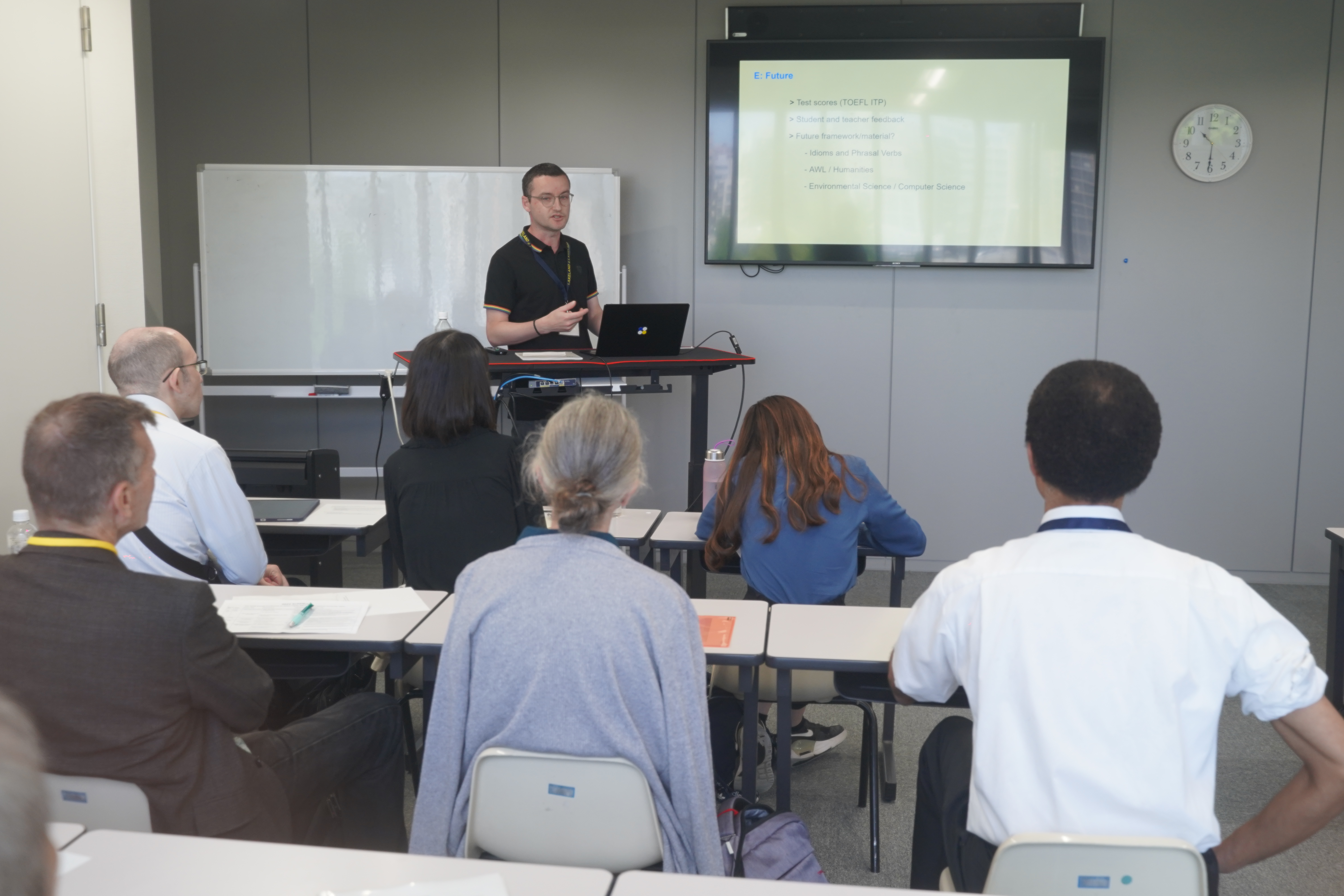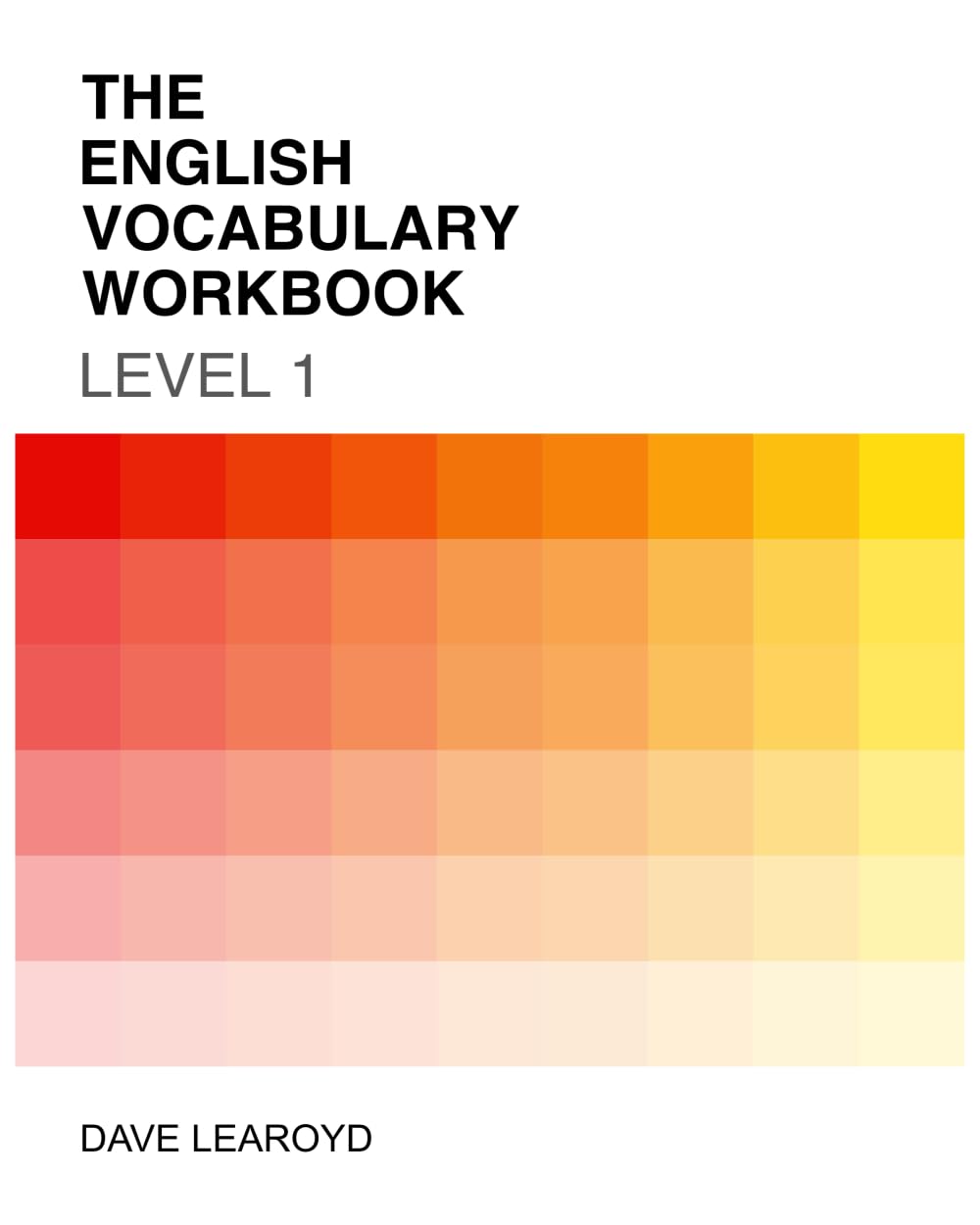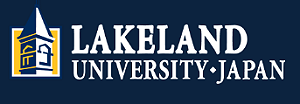
Dave sitting in a car sculpture in Tachikawa, 2025.

Dave's presentation at Lakeland's 9th annual Conference on Global Higher Education (2023).

The front cover of Dave's Level I Workbook. Dave's 5-Level workbook series is used across the EAP program.

Established in Tokyo in 1991.